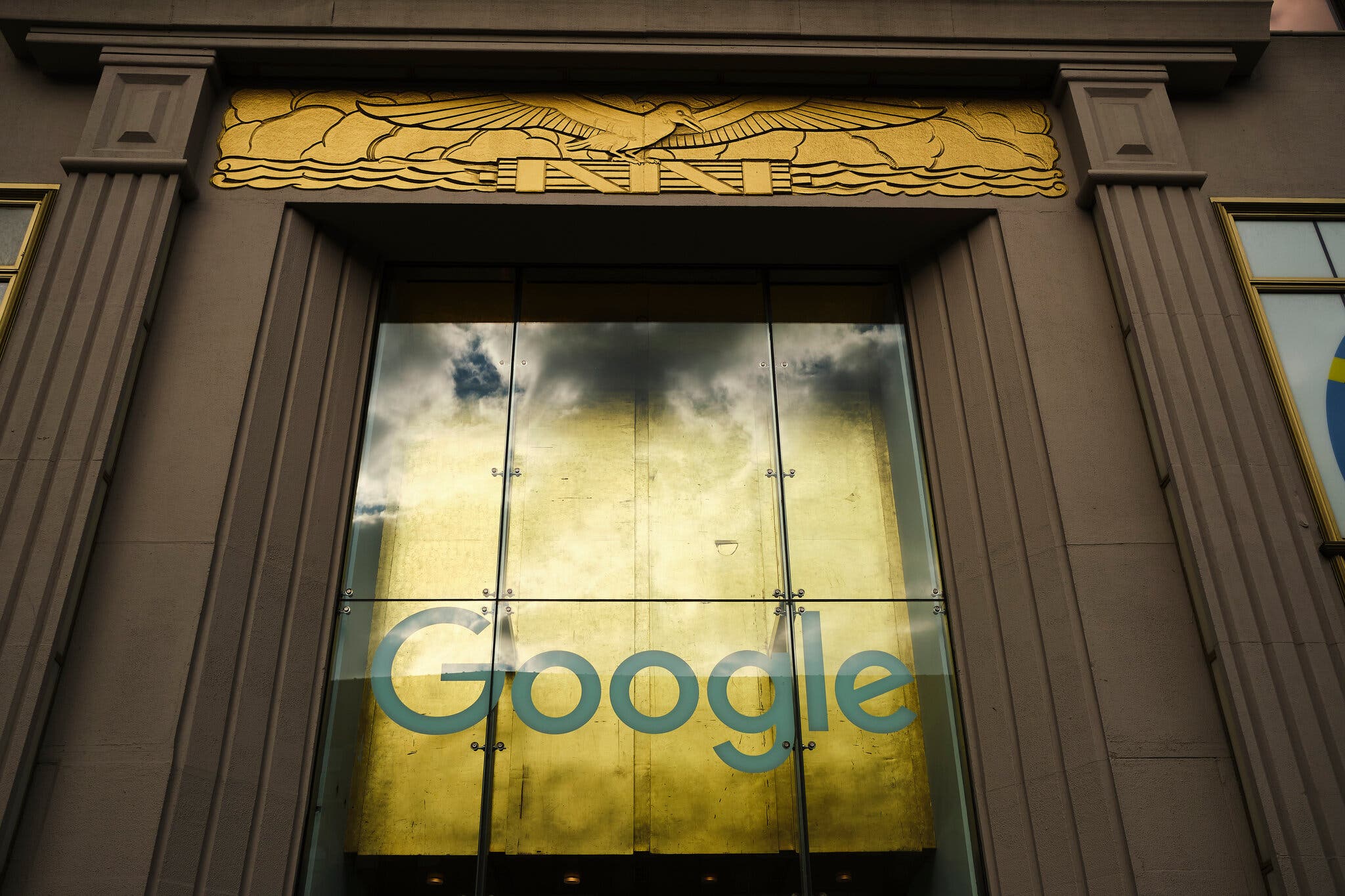Google Faces Forced Sale Of Ad Tech Following Monopoly Ruling

Table of Contents
The Antitrust Case Against Google's Ad Tech Dominance
The DOJ's antitrust lawsuit against Google centers on allegations of monopolistic practices within its vast ad tech empire. The core argument revolves around Google's alleged abuse of its dominant position in online search to stifle competition in the ad tech sector. The complaint details how Google allegedly leverages its control over search results to favor its own ad tech products, manipulating auctions and disadvantaging rival platforms. This, the DOJ argues, constitutes anti-competitive behavior that harms both advertisers and publishers.
This isn't Google's first brush with antitrust concerns. Previous investigations and fines related to anti-competitive practices have paved the way for this current, more significant legal challenge. The DOJ's case builds upon years of accumulated evidence and complaints from smaller ad tech companies struggling to compete against Google's behemoth.
- Specific examples of anti-competitive behavior: The DOJ alleges that Google uses its search dominance to steer advertisers towards its own ad exchange, Google Ad Manager, effectively creating a walled garden.
- Key evidence presented during the legal proceedings: The evidence includes internal Google documents, testimony from former employees, and market analysis highlighting Google's disproportionate market share.
- Impact on smaller ad tech companies: Smaller players have consistently complained about Google's practices, claiming they've been locked out of fair competition due to Google's leveraging of its market power.
Potential Implications of a Forced Sale of Google's Ad Tech Assets
A forced sale of Google's ad tech assets could profoundly impact the digital advertising ecosystem. The most immediate consequence would be a significant increase in competition. The breakup of Google's ad tech empire could empower smaller, more innovative companies, fostering a more diverse and competitive market.
- Increased competition leading to lower prices for advertisers: With more players vying for advertisers' attention, prices for ad placements could potentially decrease, benefiting businesses of all sizes.
- Greater transparency in ad auctions: A more fragmented market could lead to greater transparency in the complex world of programmatic advertising, allowing advertisers better visibility into the bidding process.
- Potential for innovation in ad tech solutions: Increased competition frequently fuels innovation, leading to the development of new and improved ad tech solutions.
- Potential for job losses or market disruption during the transition: While increased competition generally benefits consumers, the transition period could be turbulent, potentially leading to job losses or temporary market instability.
The Future of Google's Ad Tech Business and the Digital Advertising Market
Google’s response to the ruling will likely involve a multi-pronged strategy. This could include aggressively appealing the decision through the courts, restructuring its ad tech operations to comply with regulatory demands, or even proactively selling off parts of its ad tech business to preempt a forced sale.
The outcome of this case will undoubtedly influence future antitrust cases involving other large tech companies. It sets a crucial precedent regarding the acceptable limits of market dominance and the responsibility of tech giants to maintain fair competition.
- Google's possible legal challenges and appeals: Google is expected to exhaust all legal avenues to fight the ruling.
- The impact on other tech giants facing similar antitrust scrutiny: The outcome will have significant repercussions for other large tech firms facing similar antitrust concerns.
- The future of programmatic advertising: Programmatic advertising, a cornerstone of Google's ad tech business, could undergo significant transformation.
- The evolution of ad tech regulations globally: This case could spur increased regulatory scrutiny of the ad tech sector worldwide.
Conclusion: The Ongoing Impact of the Google Ad Tech Forced Sale
The potential Google forced sale of ad tech represents a watershed moment for the digital advertising industry. The ruling's implications are far-reaching, promising both significant benefits and potential challenges. While increased competition and greater transparency are likely positive outcomes, the transition period could be turbulent. Understanding the ongoing developments is crucial for advertisers, publishers, and anyone invested in the future of digital advertising. Stay informed about this evolving situation by following reputable news sources and industry blogs to grasp the full impact of the Google ad tech breakup and its potential ramifications on the wider digital landscape. The future of digital advertising is being shaped as we speak, and your understanding of the Google forced sale of ad tech will be invaluable in navigating this evolving terrain.

Featured Posts
-
 Ripple Xrp Rally Factors Influencing A Potential Rise To 3 40
May 07, 2025
Ripple Xrp Rally Factors Influencing A Potential Rise To 3 40
May 07, 2025 -
 Revealed Hawkgirls Wing Design In James Gunns Superman Movie
May 07, 2025
Revealed Hawkgirls Wing Design In James Gunns Superman Movie
May 07, 2025 -
 Analyzing Mr Miyagis Teaching Methods In The Karate Kid
May 07, 2025
Analyzing Mr Miyagis Teaching Methods In The Karate Kid
May 07, 2025 -
 Data Breach Office365 Executive Accounts Compromised Millions Lost
May 07, 2025
Data Breach Office365 Executive Accounts Compromised Millions Lost
May 07, 2025 -
 Fotosessiya Rianny Roskosh I Seksualnost Rozovogo Kruzheva
May 07, 2025
Fotosessiya Rianny Roskosh I Seksualnost Rozovogo Kruzheva
May 07, 2025
